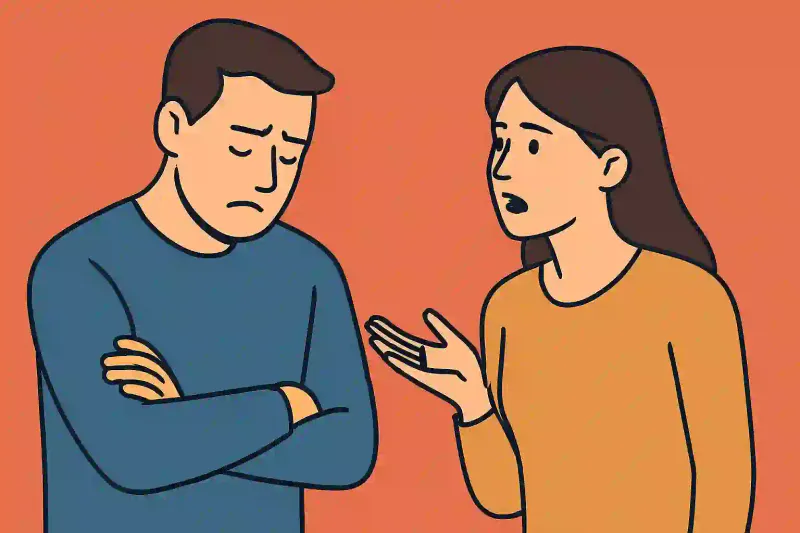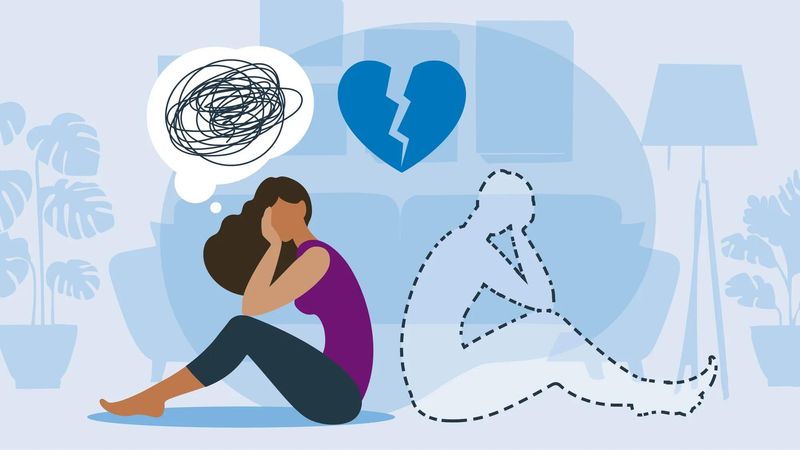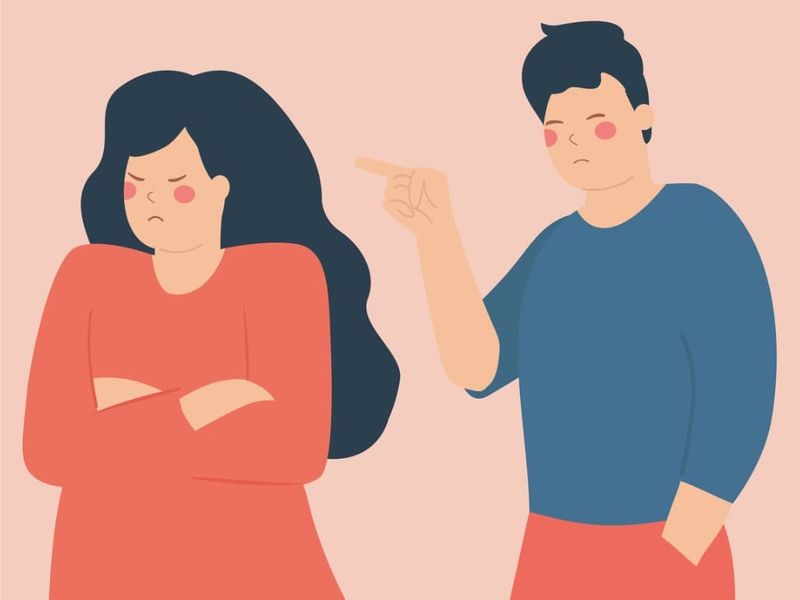Are You A Relationship Super-Helper Or Stuck In Codependency? Here Are 18 Ways To Find It Out
In the intricate dance of relationships, knowing whether you’re a super-helper or caught in the web of codependency is crucial.
Offering support in a healthy way is vastly different from losing oneself in another’s needs. This guide explores 18 signs that help you discern if your helpfulness is nurturing or veering into codependent territory.
1. Helping With Love vs. Losing Yourself

Do you find yourself constantly giving in relationships, but wonder if it’s too much? Helping with love means offering support while maintaining your sense of self. It’s about being there for others without sacrificing your own well-being.
When you’re losing yourself, you might neglect your interests, feeling your identity fades into the background. The balance between helping and losing yourself can be subtle but significant. Reflect on whether your support enriches both lives or predominantly one.
Are your acts of kindness reciprocated or expected? Remember, a healthy relationship nurtures both partners without one overshadowing the other. Aim to build connections where mutual support and personal growth coexist harmoniously.
2. You say “yes” even when you’re exhausted

When your instinct is to say “yes” despite being overwhelmed, it might indicate codependency. It’s common to want to please loved ones, but sacrificing your own well-being can be detrimental. Consider if your agreements stem from genuine desire or fear of conflict.
Constantly putting others first can lead to burnout. Your well-being deserves priority too. A pause before responding can help assess your true feelings.
Are you agreeing out of obligation? Ensuring your own needs are met allows you to offer authentic support. Setting boundaries is not selfish; it’s essential for sustainable relationships.
3. Their mood decides your day

If your emotional state hinges on another’s mood, it could signal codependency. It’s natural to empathize, but allowing their feelings to dictate yours can be overwhelming. Check if their bad day becomes yours too. Emotional independence is key to a balanced partnership.
Recognizing distinct emotional boundaries helps prevent absorbing each other’s stress. While supporting one another is important, ensure you maintain your emotional equilibrium. Understanding the difference between empathy and emotional entanglement can protect your mental health.
Cultivating your own emotional resilience allows you to be a supportive partner without losing your peace.
4. You avoid conflict at all costs

If conflict avoidance is your norm, you might struggle with codependency. While peace is desirable, avoiding necessary conversations can stifle growth. Consider why you dodge confrontation. Fear of disapproval or losing someone can make avoidance tempting.
However, addressing issues honestly is crucial for healthy relationships. Open dialogue fosters trust and understanding. Avoidance often leads to unresolved issues piling up, creating more tension. Practicing assertive communication helps in expressing needs without fear.
Remember, disagreements don’t equate to relationship failures but can strengthen bonds when handled constructively. Embrace conflicts as opportunities for deeper connection and mutual respect.
5. You take their responsibilities as your own

Taking on another’s responsibilities can blur the lines of support and codependency. While helping is noble, doing tasks they should handle themselves may hinder their growth. Ask yourself if you’re genuinely assisting or if they’ve started expecting your help as a norm.
Empowering others to handle their duties fosters independence. Constantly managing someone else’s burdens can lead to resentment.
It’s important to recognize when assistance turns into enabling. Encourage problem-solving instead of stepping in immediately. A balanced approach allows both parties to thrive, maintaining individuality within the relationship.
6. You feel guilty for setting boundaries

Setting boundaries is a healthy practice, yet feeling guilty about it can signal codependency. Boundaries are fundamental for protecting your mental space and ensuring mutual respect. Reflect on why you feel guilty. Is it fear of rejection or disappointing others?
Healthy relationships honor boundaries, recognizing them as expressions of self-care. Practicing boundary setting without guilt involves affirming your worth and needs.
This enables more genuine, fulfilling connections. Remember, boundaries are not barriers but bridges to more respectful and understanding relationships.
7. Your needs always come last

Consistently prioritizing others’ needs over your own can indicate codependency. While selflessness is admirable, neglecting your well-being isn’t sustainable. Consider if your needs ever reach the forefront. Evaluate the balance in your relationships.
Are you giving more than receiving to the point of depletion? Self-care is not indulgence but necessity. Acknowledge and voice your needs to foster healthier exchanges.
Ensuring your needs are met allows you to support others more effectively. Remember, you can’t pour from an empty cup. Prioritize your well-being to maintain a balanced, nurturing relationship.
8. You fix problems before they ask

If you often jump to solve problems unprompted, it may suggest a codependent nature. While solving issues can be helpful, doing so without being asked might undermine others’ autonomy. Reflect on your impulse to intervene. Is it driven by care or compulsion?
Encouraging loved ones to tackle challenges fosters their growth. A proactive approach is commendable, but balance is key. Ensure your actions support rather than overshadow their capabilities.
Allow space for them to manage their difficulties, enhancing their problem-solving skills. Remember, offering help is valuable, but so is empowering independence.
9. You feel anxious when they’re distant

Feeling anxious when someone is distant can be a sign of codependency. It’s natural to miss loved ones, but excessive worry about their absence might reflect deeper issues. Reflect on why their distance triggers anxiety. Is it fear of abandonment or losing status in their life?
Building emotional security within yourself reduces dependency on their constant presence. Encourage open communication about your feelings, but also nurture your independence.
Balancing connection with autonomy helps maintain a healthy relationship dynamic. Focus on personal growth and interests to alleviate anxiety and promote self-reliance.
10. You feel drained but can’t pull back

Experiencing exhaustion yet unable to retreat from a relationship suggests codependency. A fulfilling relationship should energize rather than deplete. Examine if constant giving leaves you worn out. Evaluate what prevents you from stepping back—is it obligation or fear of change?
Recognizing your limits is vital to maintaining a balanced partnership. Open communication about your needs can foster mutual understanding. Remember, it’s okay to take time for yourself.
Relationships thrive when both partners are revitalized and content. Protect your energy to sustain a nurturing and supportive connection.
11. You define your worth by how useful you are

Defining self-worth by usefulness can indicate codependency. While helping is noble, self-value should stem from your intrinsic qualities. Reflect on why utility defines your self-esteem. Are you seeking validation through service? Recognize your worth beyond actions.
Realize it’s your presence, not just productivity, that enriches relationships. Embrace self-affirmation practices to foster intrinsic value.
Appreciating yourself for who you are, rather than what you do, encourages healthier self-perception. Balance between being supportive and valuing personal attributes nurtures a more fulfilling relationship dynamic.
12. You struggle to ask for help

Struggling to seek help can indicate a codependent pattern. While self-sufficiency is admirable, accepting help fosters balanced relationships. Consider why reaching out feels challenging. Is it fear of burdening others or appearing vulnerable?
Recognizing the strength in asking for support can transform dynamics. Allowing others to assist encourages reciprocity and strengthens bonds. Practice openness in expressing needs, fostering mutual aid. Building a network of support enhances both personal growth and relational health.
13. You try to earn love through effort

Trying to earn love through effort is a hallmark of codependency. While effort is vital, love should be unconditional. Reflect on why you feel the need to prove your worth through actions. Are you equating effort with love?
Understanding that love is a mutual exchange rather than a transaction can shift perspectives. Appreciate your innate value, independent of what you provide. Recognizing unconditional love encourages more authentic connections. Embrace relationships where effort complements, not defines, affection.
14. You fear being “too much” or “not enough”

Fearing being “too much” or “not enough” can signify codependency. It’s common to seek acceptance, but these fears can stifle authenticity. Reflect on what drives these insecurities.
Are external validations shaping your self-view? Embrace your uniqueness, recognizing that being yourself attracts genuine connections. Balance self-expression with mutual respect.
Cultivating self-acceptance builds confidence in your identity. Relationships flourish when authenticity is prioritized over perfection.
15. You don’t know who you are without them

Losing sight of your identity without someone can indicate codependency. Relationships should enhance, not define, who you are. Reflect on why your sense of self hinges on their presence. Have you neglected personal interests?
Reconnect with your passions and individuality. Remember, you are whole on your own. Cultivating a strong self-identity enriches both personal fulfillment and relational dynamics. Embrace activities and interests that resonate with you, nurturing a balanced sense of self within and outside the relationship.
16. Their validation feels essential

Relying on someone’s validation for self-worth can signify codependency. While appreciation is rewarding, self-esteem should be innate. Evaluate why their approval feels critical. Do you equate it with your value? Building internal validation fosters confidence.
Recognize your strengths and achievements, independent of external praise. Encouraging self-love and affirmation nurtures a healthier self-view. Relationships thrive when participants appreciate each other without reliance on constant validation.
17. You struggle to enjoy time alone

Difficulty enjoying solitude may signal codependency. While companionship enriches life, solitude fosters personal growth. Reflect on why alone time feels challenging. Is it discomfort with your thoughts or fear of loneliness?
Embrace solitary moments as opportunities for self-reflection and relaxation. Building comfort in your own company strengthens self-awareness. Engage in activities you love solo, gradually appreciating solitude. Remember, independence complements companionship, enhancing relationship dynamics.
18. You feel like you’re walking on eggshells

Feeling like you’re navigating a minefield can indicate codependency. Constant vigilance to avoid conflict suggests underlying issues. Reflect on why the relationship feels so fragile. Is it fear of upsetting them or losing their affection?
Open communication can alleviate tension. Expressing concerns honestly fosters trust and understanding. Relationships should offer comfort, not anxiety. Building a safe space for dialogue nurtures mutual respect. Aim for interactions where both parties feel secure and valued, free from constant apprehension.







